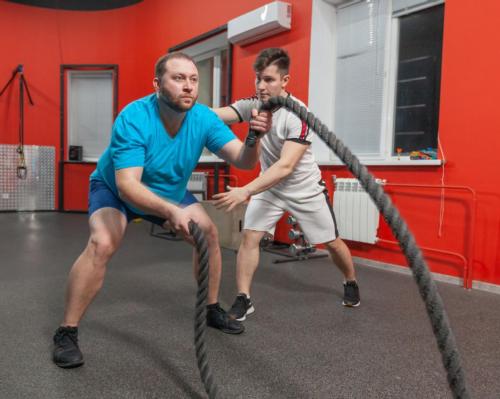01 Jun 2021
'Breakthrough moment' for exercise referral
BY Tom Walker

ukactive has published new data from the National ReferAll Database (NRD) – the UK’s first open-access database for exercise referral schemes.
The data shows that, since its launch in 2019, the NRD – which records outcome data for patients participating in the schemes – has grown to represent 40,000 unique persons who've been referred to one of 123 exercise referral schemes across the UK, between 2012 and 2021.
The sample has been taken from more than 600,000 exercise referral scheme records captured within ReferAll’s database.
Until now, data available concerning exercise referral schemes have not been able to provide conclusive evidence of their effectiveness, due to their variability and the data representing only a small proportion of schemes.
According to Dr Matthew Wade, head of research and development at ukactive, the NRD holds the key to unlocking best practice and transforming how referrals are delivered.
Wade said: "This database is integral for the success of exercise referral schemes in the future, ultimately providing the guiding evidence for the improvement of schemes, so we can increase the efficacy and consistency of our services."
The NRD was developed by ukactive, the National Centre for Sport and Exercise Medicine (NCSEM) in Sheffield and ReferAll.
By making the database an open resource and improving the quality of data captured, the three partners aim to develop NRD as a valuable resource for the wider research community, policymakers and health practitioners.
As it operates within the Open Science Framework – the movement for transparency and accessibility in research – it is hoped the database will grow to incorporate new pathways and schemes outside the traditional concept of exercise referral schemes, such as weight management services and COVID-19 recovery programmes.
The founding partners have ambitions to continually update the NRD with additional data, according to Dr James Steele, associate professor of Sports and Exercise Science at Southampton Solent University and former Principal Investigator at ukactive’s Research Institute.
Steele said: “It’s been incredibly gratifying to see the hard work over many years from all involved in this mammoth project come to fruition.
"The NRD represents a progressive step forward for the sector by making this data openly available to the wider research community.
“Certainly I, and colleagues here at Solent University, will be looking to utilise the data for future research and we encourage others to tap into the resource.
"This is only the next step in our ambitious plans for this work, we want to grow the database from where it currently is and to see more schemes signing up to include their data. We also want to work to develop core outcome datasets that are linked to meaningful outcomes and raise the quality and standardisation of data across this area.
“As the learnings of the database are incorporated into practice and policies, and as data is fed back into the database, this will facilitate continued evaluation to support our developing understanding of exercise referral schemes.”
Prof Robert Copeland, director of the NCSEM, added: “Exercise referral schemes have long been part of the physical activity, health and care landscape in the UK.
“Qualitative data with users and providers underlines their importance as part of the health promotion system in terms of individual-level benefit but to date research exploring a population effect has been undermined by low-quality data, and inconsistency in what is measured to assess benefit.
“The NRD changes this and provides the platform upon which researchers and policymakers can explore the population benefit of exercise referral schemes with greater precision.”
Stuart Stokes, MD of ReferAll, said: "I genuinely believe this could change the way ‘exercise’ and ‘medicine’ interact. What could be more important than that?
“This is a breakthrough moment; the NRD will ensure referral schemes can reach their full potential by facilitating a better understanding of exercise referral schemes and other physical-activity-related social prescribing pathways.
“It allows us to deepen our understanding of what makes schemes effective and so inform public health policy and practice."
To download the NRD's open dataset on exercise referral schemes as a PDF, click here.
Close Window